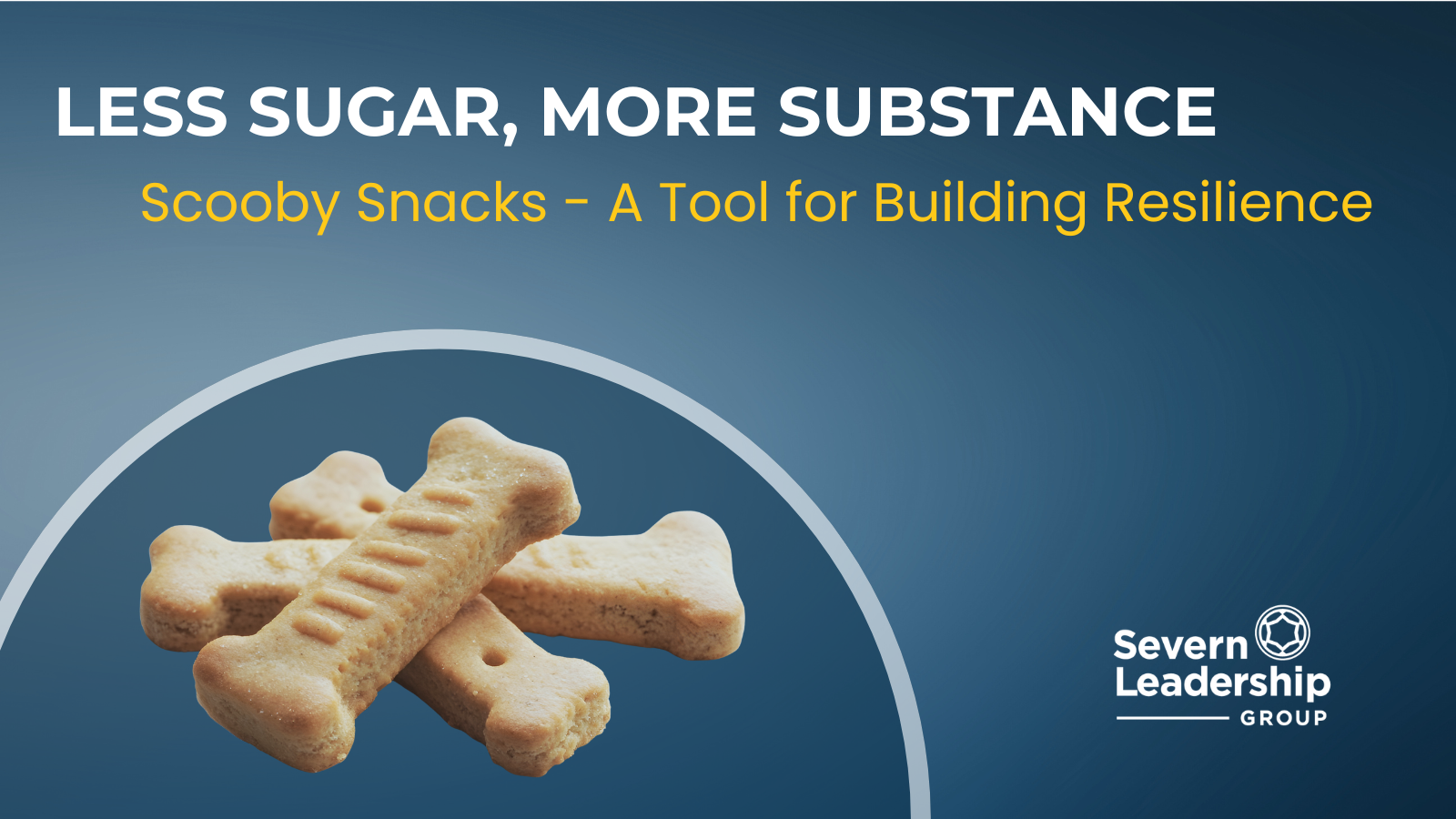Why Invest in Leadership?
If one word can be used to describe the year 2020, it might be “unprecedented”.


If one word can be used to describe the year 2020, it might be “unprecedented”. The challenges that Americans and the rest of the world share are complex and large scale, touching all walks of life indiscriminately. Pandemic effects are leaving essential elements of a flourishing life deeply wounded: children’s education is unstable; food security is less secure; financial savings are being eroded; racial divides are deepening; families are suffering from stress, anxiety and isolation.
As a board member of the Severn Leadership Group, one of my responsibilities is to lead financial support strategies for the organization. The transformational program that we provide to young leaders in our community and around the country is only possible through generous donations. This year, as supporters are considering where their time, talent and treasure should go, they continue to ask me an important question: If they have to choose between investing in leadership development or making a positive direct impact on one of our immediate social crises, why should they choose leadership?
The shortest answer is you don’t have to choose. An investment in leadership is an investment in a positive direct impact on our most relevant and timely issues. Leadership development is the long term solution to many of our woes.
The Case for Leadership
Leadership, in its best form, produces a sum greater than its parts. We are enamored by great leaders who can bring together a team of people with varied talents, agendas, and motivations, inspire innovation and creativity, and ultimately affect radical change or deliver durable solutions and/or products. When studying notable acts of leadership, the summaries we read tend to mention challenges along the way, but focus heavily on the measurable success of the outcome, attributing it to the leader. The truth in those anecdotes is that great leaders have done the work long before the defining moment of success, and without fanfare. They build leadership skills in every team member they are responsible for, and often mentor them along the way. It is the individuals who are well led that have the confidence, trust, character and hard skills to overcome challenges and perform remarkably when the time comes.
I like what John P. Kotter says about the nature of leadership. In his Harvard Business Review article What Leaders Really Do, he states that ‘[leaders] don’t make plans; they don’t solve problems; they don’t even organize people. What leaders really do is prepare organizations for change and help them cope as they struggle through it’. When put this way, I have great respect and admiration for anyone who leads well. Coping with change in our careers as well as all other dimensions of life is challenging, and many people lack the skills to deal with change well. The person who gets in front and chooses to shepherd the rest of us is inspirational.
What if we take these truths and sum up the requirements for the leader we wish to see leading our organization? Maybe this is the leader we wish to be. We are looking for a person who
- is proactive,
- is a great listener,
- is patient,
- is willing to invest heavily in others,
- is coachable themselves,
- courageously embraces change,
- has the empathy to help others thrive through change,
- doesn’t falter at a challenge,
- builds courage in others,
- and gives the credit for successes to the boots on the ground that delivered.
Where does this person come from? How do I become this person?
This desire and ability to pour into others, coaching and mentoring, is not an innate gift nor is it found in leadership training. Leading is only perfected in the act of leading, and hopefully as a future great leader, you are surrounded by seasoned guides that can help you learn, course correct, grow and flourish. This is the work of the Severn Leadership Group.
Investing in the Long Game (Leadership as a Flywheel)
Good leaders deeply understand and value the long game. Consider this excerpt from Jim Collins’ book Good to Great:
“Picture a huge, heavy flywheel—a massive metal disk mounted horizontally on an axle, about 30 feet in diameter, 2 feet thick, and weighing about 5,000 pounds. Now imagine that your task is to get the flywheel rotating on the axle as fast and long as possible. Pushing with great effort, you get the flywheel to inch forward, moving almost imperceptibly at first. You keep pushing and, after two or three hours of persistent effort, you get the flywheel to complete one entire turn. You keep pushing, and the flywheel begins to move a bit faster, and with continued great effort, you move it around a second rotation. You keep pushing in a consistent direction. Three turns … four … five … six … the flywheel builds up speed … seven … eight … you keep pushing … nine … ten … it builds momentum … eleven … twelve … moving faster with each turn … twenty … thirty … fifty … a hundred.
“Then, at some point—breakthrough! The momentum of the thing kicks in in your favor, hurling the flywheel forward, turn after turn … whoosh! … its own heavy weight working for you. You’re pushing no harder than during the first rotation, but the flywheel goes faster and faster. Each turn of the flywheel builds upon work done earlier, compounding your investment of effort. A thousand times faster, then ten thousand, then a hundred thousand. The huge heavy disk flies forward, with almost unstoppable momentum. “
The outcome, this unstoppable momentum, may be all that we see and celebrate, and everyone wants to know, “what was the one thing that produced such an incredible outcome”? It is never just one thing. Leaders recognize the importance of every ounce of effort in building momentum, and inspire teams to keep pushing the flywheel even when they’ve never experienced the breakthrough before. This is not easy work. They do this because they know that the effort put into the long game will result in compounded benefits and a longer runway for success. This principle again demonstrates the worthy return on investment in developing great leadership.
The Great Hope for the World
I meet people, new and familiar, everyday who want to make a significant contribution to his or her surroundings. One of the principles that I teach my children is to “do for one what you wish you could do for all.” We need to share our time, talents and treasure person-to-person, neighbor-to-neighbor, because of the joy and impact those efforts bring into the world. We also need to invest in the long game of raising up leaders of character and courage, so that we experience the flywheel effect in our giving.
Investing in leadership is not an “either/or” proposition. It is a strategic decision that multiplies the impact long after the gift has been given. This ripple effect is a powerful force for hope and good in our world. Thank you to all of our supporters that continue to deliver that hope through generous gifts of time, talent and treasure.
Join us by contributing to the development of future leaders in your community. Visit Our Fellows Program to submit a nomination for fellowship. Visit our Donation Page to share a financial gift.
Stay tuned for next week’s blog, as Gretchen shares how the Severn Leadership Group prepared her for a critical leadership role bringing healthcare to thousands in Nigeria.




